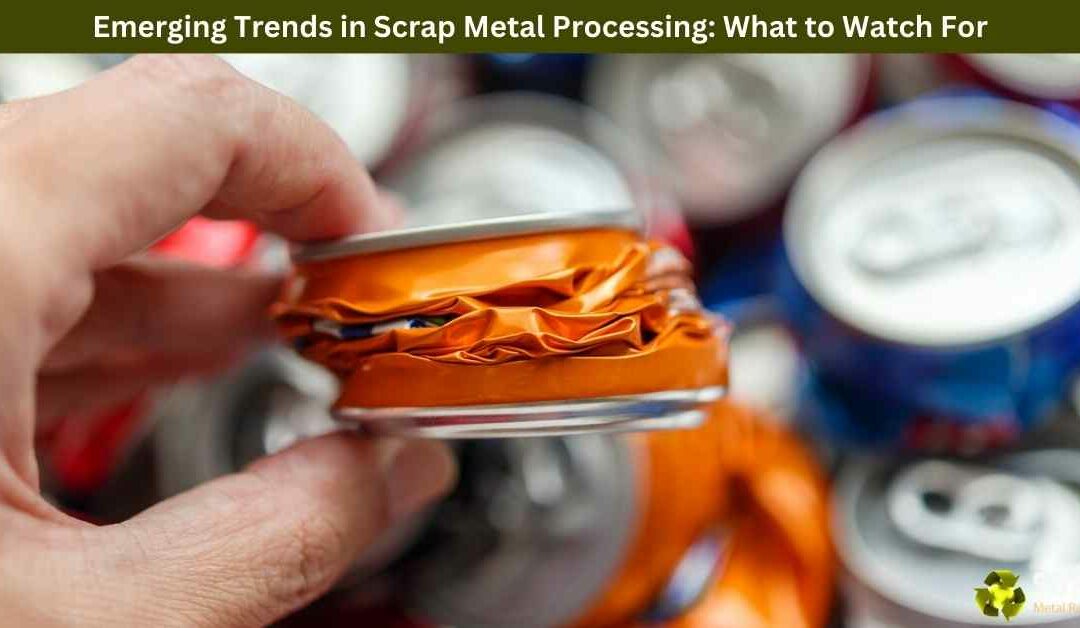The scrap metal processing industry is undergoing rapid evolution, driven by technological advancements, environmental concerns, and changing market dynamics. As demand for recycled metals continues to rise, scrap metal processors are embracing innovative technologies and practices to improve efficiency, reduce environmental impact, and stay competitive in a rapidly changing landscape. In this article, we explore the emerging trends in scrap metal processing and what to watch for in the industry.
Advanced Sorting Technologies
One of the most significant trends in scrap metal processing is the adoption of advanced sorting technologies. Traditional sorting methods rely on manual labor and visual inspection, which can be time-consuming and error-prone. However, emerging technologies such as automated sorting systems, optical scanners, and artificial intelligence are revolutionizing the way scrap metal is sorted and processed. These technologies can accurately identify and separate different types of metals based on their composition, shape, and density, leading to higher efficiency and better quality output.
Sensor-Based Sorting
Sensor-based sorting is another emerging trend in scrap metal processing that is revolutionizing the industry. By utilizing sensors such as X-ray fluorescence (XRF), near-infrared (NIR), and inductive sensors, scrap metal processors can precisely analyze the composition of metal scrap in real-time. This allows for more accurate sorting and separation of metals, resulting in higher purity and increased value of recycled materials. Sensor-based sorting also enables processors to identify and recover valuable metals from complex and mixed streams, maximizing resource recovery and minimizing waste.
Circular Economy Integration
The concept of the circular economy is gaining traction in the scrap metal processing industry, driving the adoption of sustainable practices and closed-loop systems. Scrap metal processors are increasingly focused on maximizing resource efficiency, minimizing waste, and promoting the reuse and recycling of materials. By integrating circular economy principles into their operations, processors can reduce their environmental footprint, enhance their sustainability credentials, and create new revenue streams through material recovery and reuse.
Energy-Efficient Processing
Energy efficiency is a key consideration for scrap metal processors looking to reduce operating costs and minimize environmental impact. Emerging trends in energy-efficient processing include the use of electric arc furnaces (EAFs) powered by renewable energy sources, advanced heat recovery systems, and energy-efficient equipment and technologies. By optimizing energy usage and reducing greenhouse gas emissions, scrap metal processors can improve their competitiveness and contribute to global efforts to combat climate change.
Digitalization and Data Analytics
Digitalization and data analytics are transforming the way scrap metal processing facilities operate, enabling real-time monitoring, optimization, and predictive maintenance. By leveraging data analytics, processors can gain valuable insights into their operations, identify opportunities for improvement, and make data-driven decisions to enhance efficiency and productivity. Digitalization also enables better traceability and transparency throughout the supply chain, ensuring compliance with regulatory requirements and customer expectations.
Sustainable Supply Chain Management
Sustainable supply chain management is becoming increasingly important for scrap metal processors as stakeholders demand greater transparency and accountability in sourcing practices. Processors are implementing measures to ensure responsible sourcing of scrap metal, including due diligence processes, chain of custody certification, and engagement with suppliers on sustainability issues. By promoting ethical and sustainable practices throughout the supply chain, processors can enhance their reputation, mitigate risks, and meet the growing demand for responsibly sourced materials.
The scrap metal processing industry is undergoing significant transformation, driven by technological innovation, sustainability imperatives, and evolving market dynamics. Emerging trends such as advanced sorting technologies, sensor-based sorting, circular economy integration, energy-efficient processing, digitalization, and sustainable supply chain management are reshaping the industry and presenting new opportunities for processors to thrive in a competitive market. By staying abreast of these trends and embracing innovation, scrap metal processors can position themselves for success and contribute to a more sustainable and circular economy.
If you are in Oakleigh, Victoria 3166, and looking for a metal recycling service, this is the best way to visit us.
Super Metal Recycling
345 Frankston – Dandenong Road, Dandenong South VIC 3175
(03) 9706 4909


Recent Comments